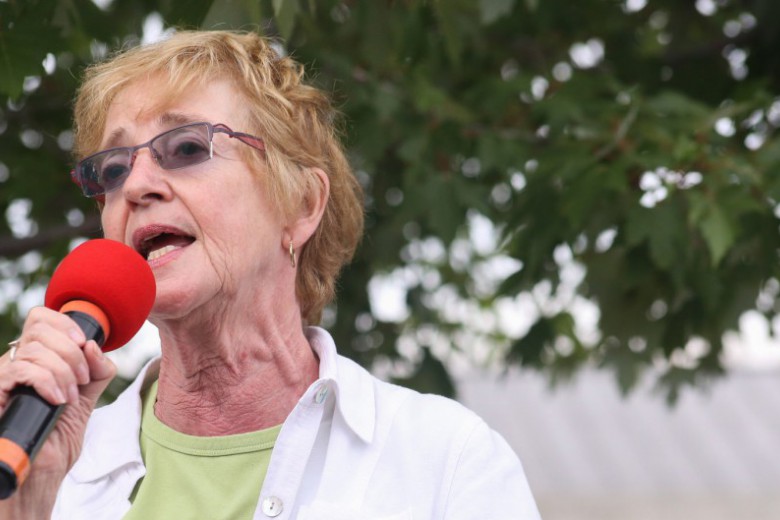
Hassan Diab, a Canadian citizen and former University of Ottawa professor, faces the possibility of life imprisonment in France for his alleged role in a 1980 Paris bombing that killed four people. Diab’s finger and palm prints do not match those of the suspect, nor does his handwriting. The suspect’s physical description is unlike what Diab looked like in 1980, and Diab denies being in France and emphatically condemns the bombing. He’s being sought based on secret intelligence, the source of which even French officials are unaware, that may have been extracted under torture. Nevertheless, Canada’s draconian Extradition Act may provide legal grounds for Canada to send Diab to France to stand trial.
The likelihood that Diab would receive a fair trial in France is uncertain. That country is currently before the European Court of Human Rights for violating Article 6 of the European Convention on Human Rights – the right to fair trial – for running trials based on secret, anonymous intelligence.
This extremely problematic case is part of a general trend over the past decade of extraterritorial, frontier justice under which fragile rule-of-law precepts, such as reasonable grounds for arrest, charges, and a fair trial, have been tossed aside under the national security rubric. The seemingly inviolable protections of citizenship or refugee status become secondary concerns when one country seeks the apprehension of someone halfway around the world. While the past decade’s abduction and rendition to torture programs have received a fair amount of attention, lesser known, judicially sanctioned processes such as the Extradition Act are also used to uproot someone to face a perilous fate in another nation.
Most Canadians will never experience the violence of being nabbed by a foreign government. But Diab’s case highlights the dangers posed, especially to already targeted communities, by legally sanctioned arbitrary arrest, detention and overseas imprisonment on the simple say-so of a foreign government. As stated in a 2009 counterterrorism study by the International Commission of Jurists, certain governments “want to reserve for themselves the power to designate a class of people who are not entitled to the same rights as other human beings.”
Were Diab to be tried in Canada, the case would be laughed out of court. But an extradition hearing is not a trial. Rather, it is an exercise in maintaining cordial relations with a foreign government. Once the Justice minister sets the process in motion, an individual is arrested and faces an extradition hearing that many critics view as a rubber stamp. An individual seeking to present evidence of innocence is normally halted by a judge who says that all those issues can be sorted out “over there,” where it is presumed a fair trial will ensue. As Manitoba Judge Freda Steel wrote in a 1999 extradition case: “Evidence at an extradition hearing should be accepted even if the judge feels it is manifestly unreliable, incomplete, false, misleading, contradictory of other evidence, or the judge feels the witness may have perjured themselves.”
And so Diab, like many before him, suffers the double-barrelled wound of a process under which the standards to commit someone to extradition are painfully low and an ultimate decision that is more political than legal. While the Justice minister considers whether to proceed in the beginning and also receives submissions towards the end of the process – in essence, having the rarely exercised opportunity to reject the initial decision – the Supreme Court of Canada has noted the minister must ultimately determine the extent to which the feathers of a foreign power will be ruffled if the extradition is rejected. While the minister can refuse based on grounds that the surrender would be unjust, oppressive or motivated by political or racial persecution, such a decision is extremely rare, given the political ramifications.
In addition, while Canada has more than 50 extradition agreements, not all of them are reciprocal. France, for example, will not allow its citizens to be extradited to Canada.
In theory, this process could affect, for example, a Saskatchewan trade unionist in contact with labour colleagues in the repressive country of Colombia where standing up for workers’ rights is equated with terrorism. Or it could ensnare someone in New Brunswick who donates to a global charity that runs afoul of U.S. authorities and is placed on a blacklist. In both instances, those foreign governments could allege that the Canadian has contravened their country’s antiterrorism scheme and could precipitate their extradition to Colombia or the U.S. Under Canada’s extradition laws, anyone in this country could be deprived of their basic Charter of Rights protections in order to maintain friendly diplomatic relations with the requesting state. Persecution by proxy against a political pain in the neck who lives in Canada is not out of the question.
In practice, however, the extradition process is most often used against communities that are already marginalized and criminalized based on race or religious background. Among numerous examples of recent cases is Edmonton’s Sayfildin Tahir Sharif, accused of contributing to a 2009 Iraq bombing that killed American soldiers. Arrested in January 2011, Sharif is sought by the United States. And according to the CBC, the RCMP prevented him from seeing his lawyer while in an Edmonton jail until U.S. interrogators had finished with him. If he did pose a threat, though, why was he not charged in Canada? Or was there a better chance of a conviction if he were to be tried in the U.S.? Weeks later, Sharif was denied bail at a hearing, despite the judge concluding that the evidence against him was “not overwhelming.”
The failure of a case to be “overwhelming” in extradition scenarios is a common refrain. American Indian Movement activist Leonard Peltier – still in prison after almost 40 years – was turned over to the U.S. by Pierre Trudeau’s since regretful solicitor general, Warren Allmand, even though, as Amnesty International points out, the extradition was based on false information. In 2003, First Nations activist John Graham was also extradited on hearsay and circumstantial grounds that would not withstand a Canadian court’s scrutiny. Then there’s Marc Emery, the Prince of Pot, who was selling cannabis seeds over the Internet from Vancouver, which is legal here but in contravention of U.S. laws, landing him a five-year sentence stateside courtesy of the Extradition Act.
For Toronto’s Gary Freeman, a 35-year-old incident a Chicago cold case squad brought to the RCMP in 2004 resulted in the mild-mannered library worker’s high-profile takedown arrest. The case against Freeman – which alleged that the African American shot a white police officer in self-defence in the racially charged climate of 1969 Chicago – was so replete with errors, inconsistencies and a lack of original evidence (which mysteriously disappeared) that the Crown attorney at one point was reduced to defending the inconsistency between one account describing seven shots fired and another stating it was “about 13 shots.” The Crown argued that the descriptions were close enough since seven is almost 13, to which the judge replied: “Seven isn’t ‘about 13’ where I come from. Twelve is about 13; 14 is about 13, but not seven. What it means in the ultimate result may be another matter quite altogether.”
The judge nonetheless proceeded to sign the order that eventually landed Freeman back in Chicago where, under a plea agreement, he served 28 days in Cook County Jail and made a significant charitable donation before being released. Now, with a U.S. criminal record, Freeman is considered inadmissible to Canada and is unable to return to his family in Ontario, where he had lived for over three decades.
Disturbingly, extradition requests also undermine the legal protections accorded refugees. Adolf Horvath, declared by Canadian immigration officials to be a person in need of protection because of the severe violence he and other Roma suffer in Hungary, found his refugee status at risk when his former country sought his return to face extortion charges even after the two key witnesses had recanted their original allegations. Faced with sending a refugee back to a country Canada had already determined was dangerous for Horvath, the Justice minister simply wrote to the Immigration minister asking for a new opinion. Conveniently, a reply came back claiming the situation in Hungary had remarkably “changed” and that Horvath would not be at risk, contrary to all established human rights assessments of the time.
Horvath went underground rather than surrender to Canadian authorities, but after a year was found and sent back to Hungary, where a sham trial proceeded and he served a jail term. Although Horvath has since returned to Canada, government officials now say that his criminal record in Hungary renders him inadmissible, despite his protected person status, and he is fighting deportation once again.
For Ottawa’s Diab, life is a constant waiting game. The only thing that keeps him out of the Ottawa Detention Centre is a GPS monitoring unit that tracks his every move, for which he and his partner Rania Tfaily must pay $2,000 a month to ensure his limited freedom. Having to cough up so much money to stay out of jail while the process winds its way through the courts is yet another violation of the presumption of innocence that disappears once the extradition process begins.
Diab’s nightmare began in 2007. Because Hassan Diab is a common Middle Eastern name, Diab chose to not respond with alarm when, while working as a University of Ottawa sociology professor, he was approached by a Le Figaro reporter asking him whether he knew French authorities were claiming he had been involved in the 1980 bombing.
Diab could not so easily dismiss the unidentified individuals and vehicles that began following him or the attempted break-in at his residence. Although he filed numerous reports with Ottawa police, the intensive surveillance (which he later found out was conducted by RCMP agents) continued, culminating in his 2008 arrest.
Since then, Diab has been involved in protracted court proceedings challenging weaknesses in the French case. Things came to a head with a June 6, 2011, decision to commit Diab to extradition. While most extradition proceedings last one or two days, Diab and his lawyer, Donald Bayne, waged a Herculean, year-long effort to illustrate the implausible nature of the French case.
A packed Ottawa courtroom filled with Diab supporters was shocked when the Ontario court judge, Robert Maranger, after calling the case against Diab “weak,” “suspect” and “confusing” and claiming that “the prospects of conviction in the context of a fair trial seem unlikely,” concluded: “It matters not that I hold this view. The law is clear that in such circumstances a committal order is mandated.”
The French case had long attributed smoking-gun status to a single piece of evidence – a handwriting report by someone with a degree in biology and forensics who took only 21 hours of training in expert handwriting analysis. The report was subject to three blistering critiques by internationally renowned handwriting experts, all of whom testified to its “appalling unreliability.” In addition, both France and Canada’s attorney general had withdrawn previous handwriting reports when it was revealed that they were based on handwriting samples that were not even written by Diab.
“Although I could not conclude it was manifestly unreliable, it was nonetheless highly susceptible to criticism and impeachment,” Judge Maranger wrote of the handwriting evidence. He added that the report was based on questionable methods and analysis, calling it not only illogical but also “convoluted, very confusing, with conclusions that are suspect.” However, Maranger also accepted the Canadian government’s position that “there is no responsibility upon a requesting state to provide full disclosure of all of its evidence.” In other words, even if all of the available evidence points to an individual’s innocence, the requesting state’s allegations – even when based on evidence they may choose not to disclose – take precedence.
Diab’s conundrum now hinges in part on differing interpretations of the law. The Supreme Court of Canada recently ruled in another case that it is “axiomatic that a person could not be committed for trial for an offence in Canada if the evidence is so manifestly unreliable that it would be unsafe to rest a verdict upon it. It follows that if a judge on an extradition hearing concludes that the evidence is manifestly unreliable, the judge should not order extradition.”
The opinion of Canada’s highest court would trump Maranger’s finding as would the opinion of courts in British Columbia where standards on extradition are interpreted differently than in Ontario. Had Diab been a Vancouver resident, he would likely be a free man today instead of facing the possibility of life imprisonment.
In the meantime, Diab continues to endure daily life under debt-ridden house arrest as his case makes its way through the judicial and ministerial bureaucracy. An early 2012 hearing before the Ontario Court of Appeal will attempt to reverse the Maranger extradition decision, and if that fails, Diab is prepared to head to the Supreme Court. He also awaits a final decision based on legal submissions to the Justice minister, an outcome for which he is not holding his breath given the current political climate. In the meantime, he and Tfaily continue organizing to bring Canada’s extradition law into harmony with the fair trial standards accorded anyone else caught up in the criminal justice system and to restore justice and peace to their own lives.


_780_520_90_s_c1.jpg)


